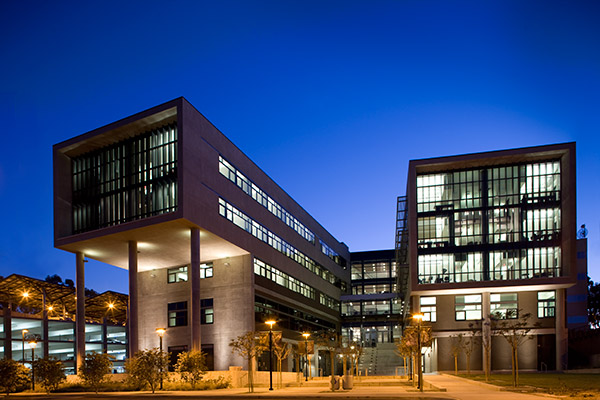Halıcıoğlu Data Science Institute (HDSI) Announces Data Planet Fellows
Story by:
Published Date
Article Content
In its first phase, HDSI Data Planet will empower all UC San Diego PIs and their research groups doing data-intensive research. They can share the valuable datasets they create, along with associated data-related artifacts such as models built on the data, code and scripts, documentation and reports, etc. with customizable access control. In turn, this can spur new collaborations, including inter-disciplinary collaborations, with other researchers and instructors who consume the datasets or artifacts. The ultimate goal is to enable UC San Diego-originating datasets to amplify their impact on both research and wider society.
A landmark recent announcement from the White House Office of Science and Technology Policy also mandates that now for all federally-funded research. The HDSI Data Planet Initiative creates a collective resource on campus to enable and spur easily reproducible, shareable, and searchable data-intensive research at UC San Diego. A major part of this initiative is a private and secure data sharing infrastructure within the campus network for both published and work-in-progress research. This infrastructure is based on a popular open source platform named Dataverse. It will be housed in partnership with the San Diego Supercomputer Center (SDSC).
The inaugural class of HDSI Data Planet Fellows were selected by an HDSI faculty committee consisting of Arun Kumar, Jingbo Shang, Yoav Freund, and Yusu Wang via a competitive process. The nominees were put forth by their advisors who are on the HDSI Faculty Council. These prestigious fellowships will also financially support a full year of the students’ research.
The Fellows will work with the HDSI Data Planet team as “early adopters” of the infrastructure to share valuable datasets/artifacts along with detailed metadata using relevant training materials provided to them. They will iterate with the team to provide feedback to improve the platform. They will evangelize the data-mindful culture on campus as the Data Planet community grows, in line with HDSI’s mission as the hub of Data Science at UC San Diego. In the end, the Fellows will present at an HDSI event about their research, the dissemination/adoption of their datasets/artifacts, and their experiences with the HDSI Data Planet program.
Here is the complete list of the inaugural class of HDSI Data Planet Fellows:
Alessandro D’Amico (Ollie), nominated by Virginia de Sa of HDSI and Cognitive Science. His research involves novel and large amounts of EEG data and other relevant biosignals. They are expected to power new research to deepen our understanding of cognitive neuroscience, inform the development of new brain-computer interfaces, and obtain new insights on diagnosing and treating clinical brain disorders.
Shuheng Li, nominated by Rajesh Gupta of HDSI and Computer Science and Engineering. His research involves novel and large multimodal data about human activity recognition from various sensors such as IMU, Kinect cameras, and WiFi CSI. They are expected to power research into new sensing systems and applications and obtain a deeper understanding of human behavior in various contexts.
Isaac Nealey, nominated by Ilkay Altintas of HDSI and SDSC. His research involves large amounts of forest wildfire monitoring-related data from the WIFIRE project, spanning LiDAR sensors, 3D vegetation models, QIUC-Fire simulation outputs, and real-time weather data. They are expected to power new research and artifacts for data pipelines and visualizations to help both researchers and fire professionals to better model and respond to wildfires.
Zhongyang Zhang, nominated by Tauhidur Rahman of HDSI. His research involves novel and large data of human dancing events recorded by new neuromorphic cameras in low-light, dynamic, and cluttered settings. They are expected to power new research on understanding human movement, obtain new insights on neurodegenerative diseases, and enable new video analytics applications.
Share This:
You May Also Like
Stay in the Know
Keep up with all the latest from UC San Diego. Subscribe to the newsletter today.




